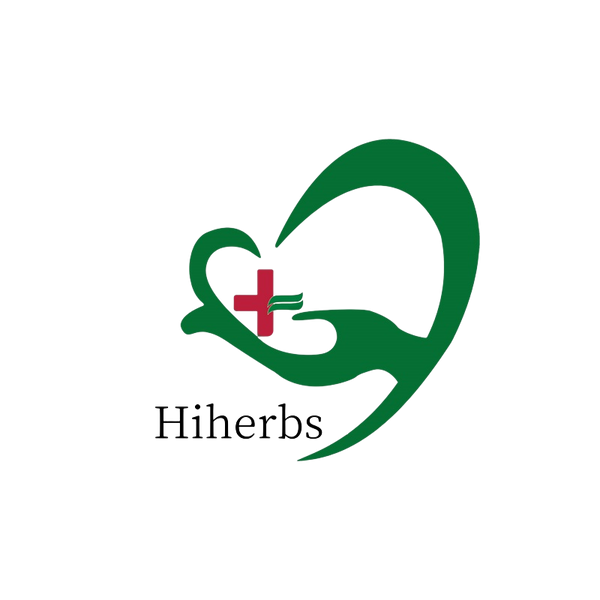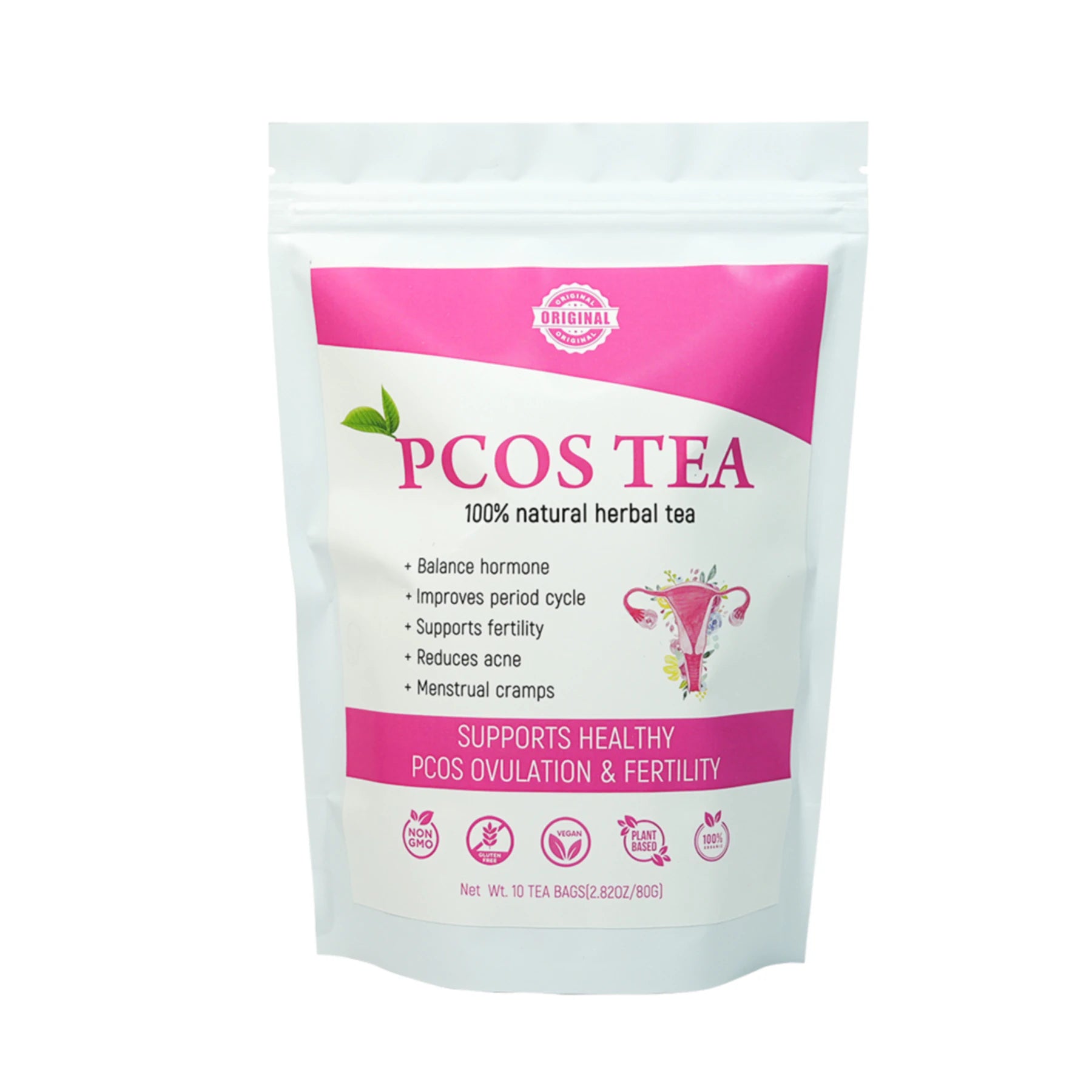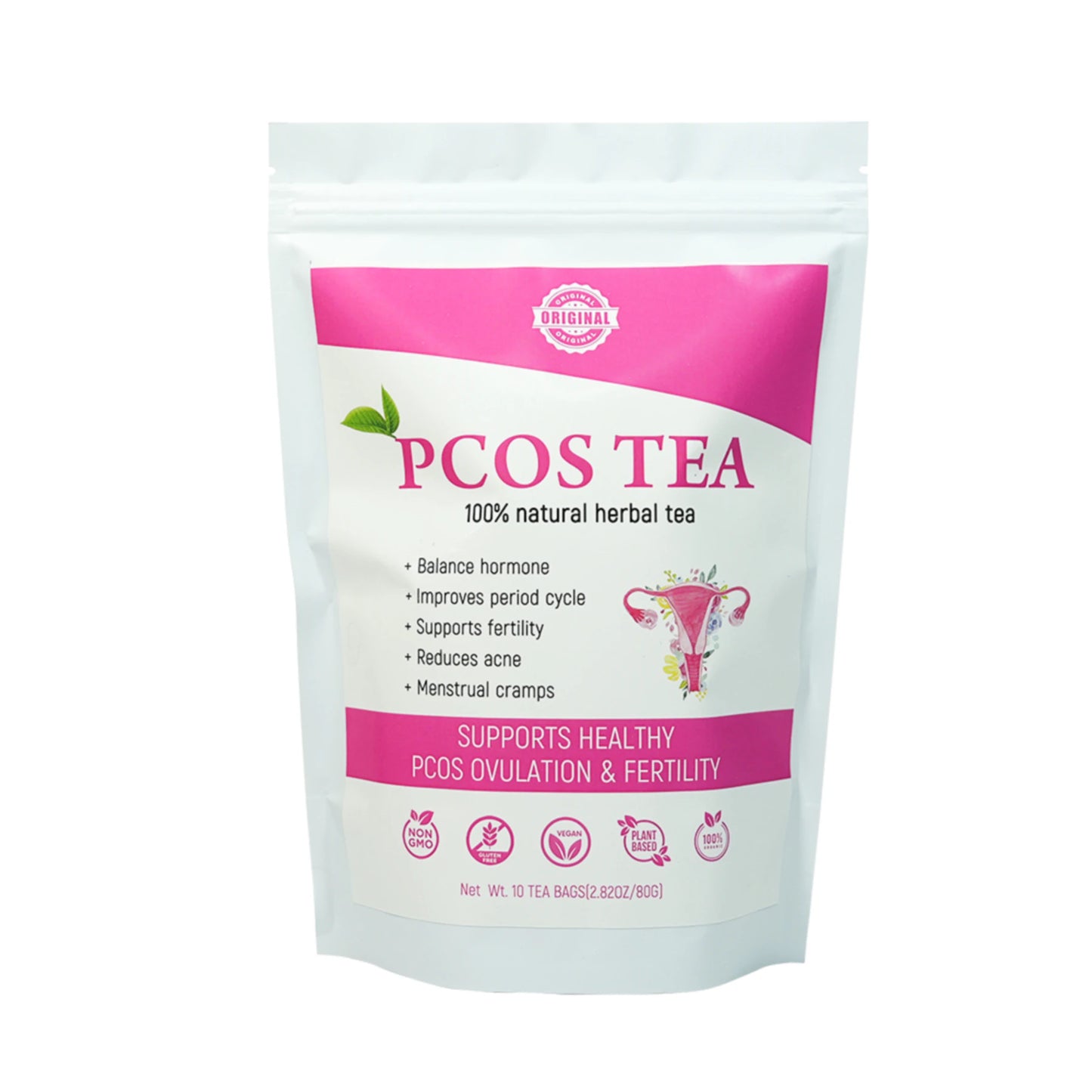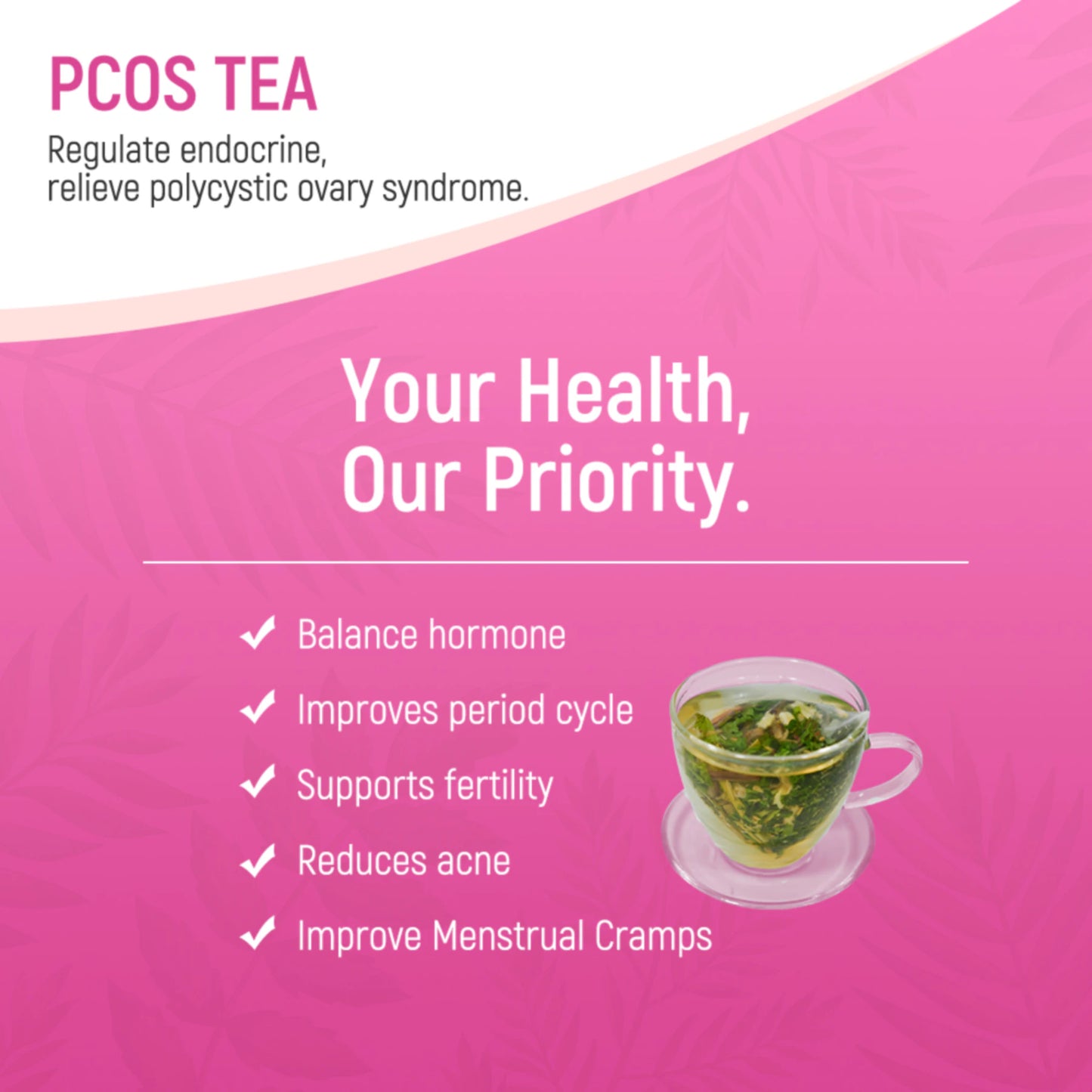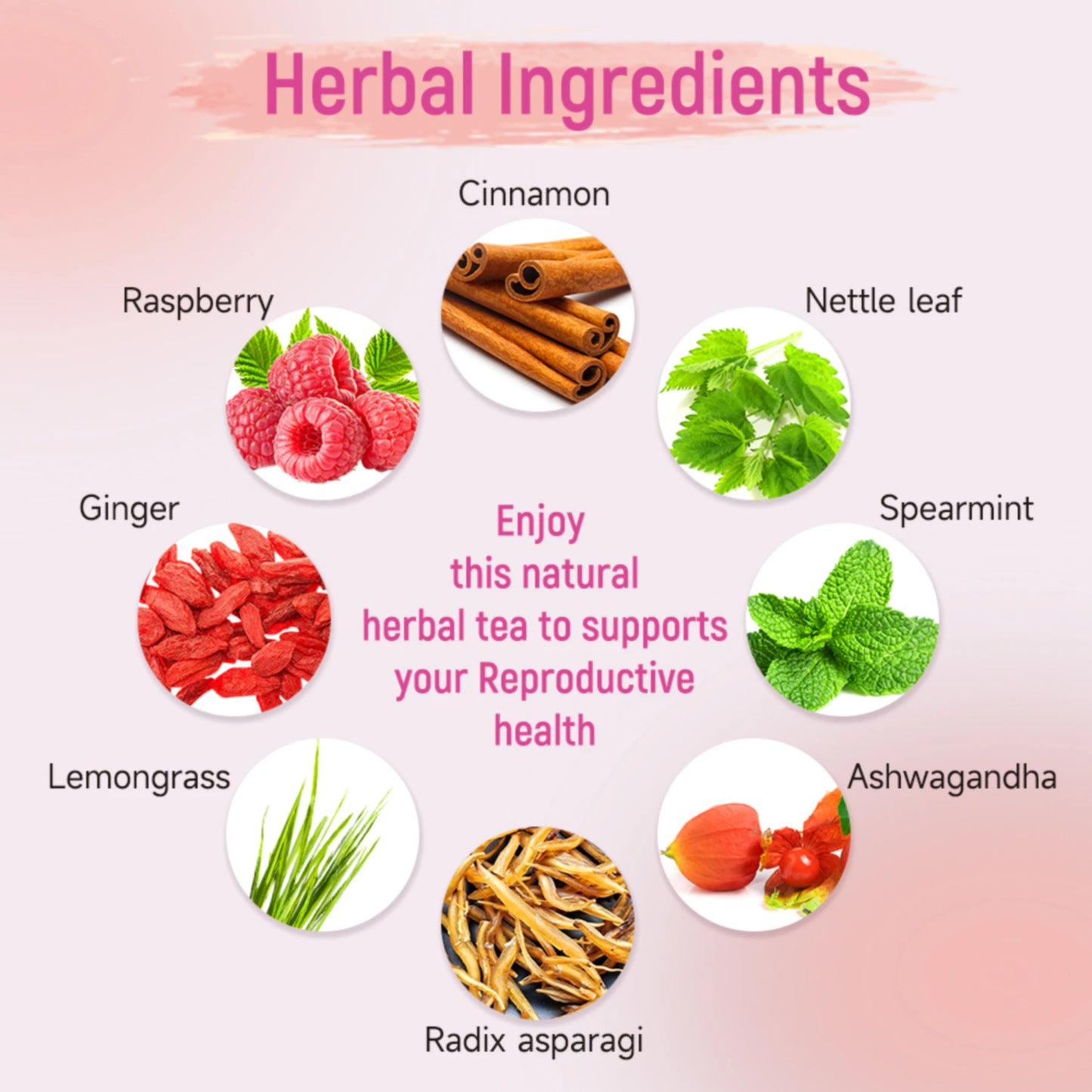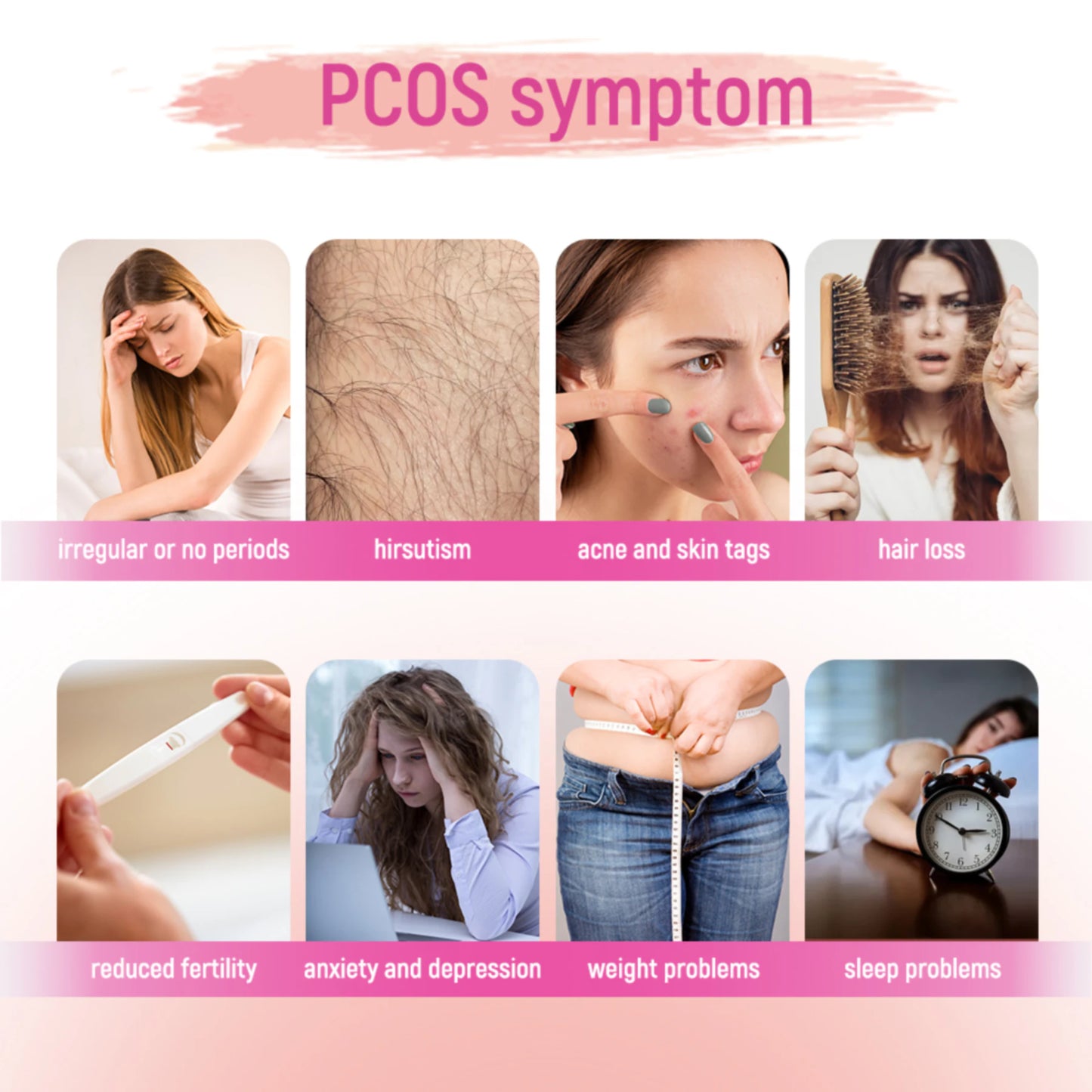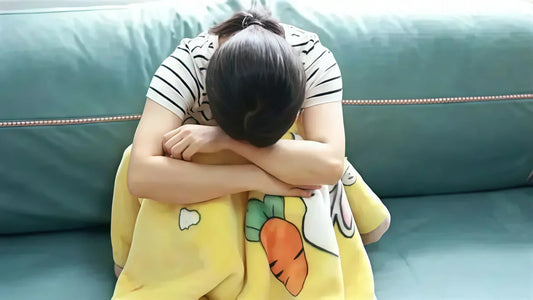What to Do If a 19-Year-Old Female Doesn't Get Her Period?
HiherbsOfficial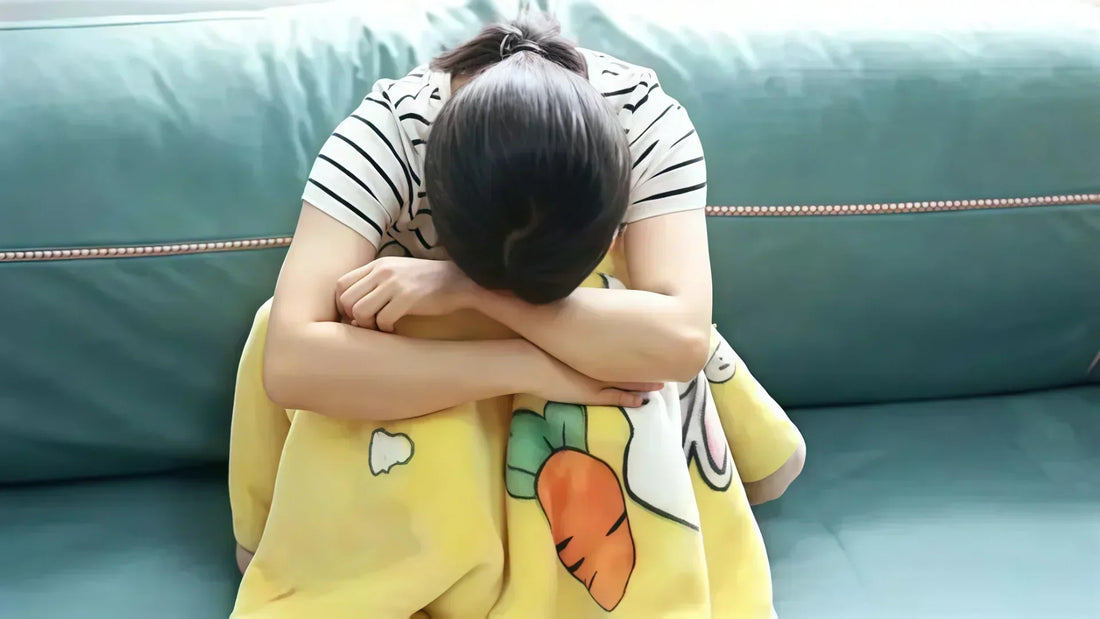
Share
Recently, many friends have consulted us: "I just turned 19, but my period is very irregular. What should I do?" Today, we dedicate a professional and scientific answer to this crucial health question.

Table of Contents
Why Does Amenorrhea Occur?
If a 19-year-old girl has no menstruation for more than three months, it is mostly caused by pregnancy. However, it is also possible that it is due to various factors such as emotional instability or primary ovarian insufficiency. Once the cause is identified, appropriate and effective treatment can be received.
1. Pregnancy
If a 19-year-old female is sexually active without consistent contraception, pregnancy is a possibility, which naturally halts menstruation. A hospital visit for an ultrasound (to check for gestational sac) and a blood test (to check Human Chorionic Gonadotropin - HCG levels) is necessary. If confirmed, this is a normal physiological phenomenon requiring no special treatment other than proper prenatal care.
2. Emotional Instability
Chronic stress and significant emotional fluctuations can lead to hormonal imbalances, often resulting in delayed or absent menstruation. It is recommended to consciously relax, minimize psychological burden, and maintain a calm living environment to support both mental and physical health.
3. Primary Ovarian Insufficiency
Ovarian dysfunction can lead to abnormal estrogen secretion, resulting in delayed menstruation or amenorrhea. Under a doctor's guidance, medications like Estradiol Tablets or Diethylstilbestrol Tablets may be used to regulate ovarian function. Consuming more soy products (like soy milk and tofu) is also beneficial.

Other Potential Causes: In addition to the common reasons above, other conditions such as anemia or hypothyroidism (underactive thyroid gland) can also cause amenorrhea, requiring prompt medical diagnosis and treatment.
TCM Approach to Menstrual Regulation

Don't worry! Menstrual irregularities can often be improved through herbal medicine, acupoint stimulation, lifestyle adjustments, emotional management, and dietary intervention. Common TCM causes include Deficiency of Qi and Blood, Cold Coagulation in the Uterus, Liver Qi Stagnation, Kidney Essence Deficiency, and Phlegm-Damp Obstruction.
-
1. Qi and Blood Tonification
Qi and Blood Deficiency leads to lack of menstrual source, causing delayed or scanty periods. Use formulas like Dang Gui Bu Xue Tang (Angelica Sinensis Decoction). Complement with moxibustion at Guanyuan (CV4). Eat *Wu Hong Tang* (Five Red Soup: Red dates, red beans, red-skinned peanuts, Goji berries, brown sugar) three times a week. Avoid excessive dieting and ensure daily intake of iron-rich foods like animal liver or spinach.
-
2. Dispel Cold & Warm the Uterus
Exposure to cold during the menstrual period can cause Cold Coagulation in the Uterus. Use Ai Fu Nuan Gong Wan (Mugwort and Cyperus Pill). Apply moxibustion with ginger slice over Shenque (CV8). Soak feet in hot water with 30g of Mugwort leaves daily for 20 minutes. Drink Ginger-Jujube Tea (3 slices ginger, 5 red dates) starting one week before menses. Avoid cold drinks and ensure the lower abdomen is kept warm.
-
3. Soothing the Liver and Relieving Depression
Long-term stress leads to Liver Qi Stagnation, manifesting as pre-menstrual breast distension and irregular menses. Use formulas like Chai Hu Shu Gan San (Bupleurum Powder). Apply acupressure to Taichong (LV3) daily for 3 minutes. Drink Rose Flower (6 petals) and Tangerine Peel (3g) tea. Maintain sleep before 11 PM and avoid severe emotional fluctuations.
-
4. Kidney Essence Replenishment
Congenital Kidney deficiency can lead to infrequent periods. Use Zuo Gui Wan (Restore the Left [Kidney] Pill). Apply moxibustion to Shenshu (BL23). Eat Black Bean and Walnut Porridge four times a week. Practice moderation in sexual activity and avoid staying up late, which injures Kidney Yin.
-
5. Resolving Phlegm and Unblocking Menses
Obesity and Phlegm-Dampness can obstruct the thoroughfare and conception vessels. Use Cang Fu Dao Tan Wan (Atractylodes and Cyperus Phlegm-Resolving Pill). Massage acupoint Fenglong (ST40). Consume Coix Seed and Winter Melon Soup three times a week and fast-walk for 40 minutes daily. Reduce consumption of sweet, greasy, and fried foods; if overweight, control BMI below 24.
General Advice: Regular sleep (ensuring rest during the Liver/Gallbladder time, 11 PM to 1 AM) helps nourish Liver Blood. After menstruation ends (for three days), you can consume E Jiao Gao(Donkey-Hide Gelatin Cake). Engage in 30 minutes of aerobic exercise (like Tai Chi or jogging) three times a week to improve pelvic circulation and avoid prolonged sitting. Long-term amenorrhea requires screening for underlying conditions like Polycystic Ovary Syndrome (PCOS), gynecological B-scan, and sex hormone profile tests. Constitutional regulation requires persistence for three menstrual cycles or more. During menstruation, avoid pungent and stimulating foods, and keep the lower abdomen warm with a heating pad.
Common Herbal Teas for Regulating Menstrual Irregularities

What flower teas can help treat menstrual irregularities? The following blends are highly effective:
- Safflower Tea: Invigorates blood, dispels stasis, reduces swelling, and relieves pain. Good for dysmenorrhea and irregular periods caused by blood stasis.
- Rose Flower Tea: Regulates Qi, relieves depression, and moves blood stasis. Excellent for menstrual disorders caused by Qi stagnation and blood stasis.
- Chinese Monthly Rose Tea: Regulates menses and invigorates blood, relieves abdominal pain. Effective for pain and irregularity due to blood stasis.
- Lotus Flower Tea: Clears heat, detoxifies, and invigorates blood stasis. Helps relieve abdominal pain and irregularity caused by blood stasis.
- Sweet Osmanthus Tea: Warms the middle, dispels cold, and warms the uterus to relieve pain. Great for cold-type constitutions experiencing dysmenorrhea and irregular periods.
Other beneficial flower teas include Chrysanthemum Tea, Honeysuckle Tea, and Roselle Tea (Hibiscus). Choose based on your constitution and preference.
You might also consider Hiherbs PCOS Tea and Fibroids Tea.
These two teas are based on centuries of TCM heritage and specifically address common female issues like menstrual irregularity, menstrual disorder, and dysmenorrhea. The founder aims to promote their family's ancestral TCM knowledge to benefit more people.

Hiherbs PCOS Tea
Targeted blend for supporting hormonal balance and regular menstrual cycles often associated with PCOS.

Hiherbs Fibroid Tea
A traditional blend designed to address blood stasis and promote better pelvic health related to fibroids.
Note: While flower teas can help regulate menstrual irregularities, they are not a substitute for medical treatment. If the condition is severe, seek immediate medical attention and follow your doctor's guidance.
References
- American College of Obstetricians and Gynecologists (ACOG). (2020). Management of Amenorrhea. *Obstetrics & Gynecology*, 136(5), 987–999.
- Liu, Z., Chen, B., Li, X., & Zhang, J. (2018). Clinical Efficacy and Safety of Traditional Chinese Medicine for the Treatment of Primary and Secondary Amenorrhea: A Meta-Analysis. *Chinese Journal of Integrated Medicine*, 24(7), 483–491.
- Han, Y. M., & Park, M. S. (2021). The effects of emotional stress on the hypothalamic-pituitary-ovarian axis and the menstrual cycle: A systematic review. *Journal of Psychosomatic Obstetrics & Gynecology*, 42(3), 200–211.
- Chang, H. T., Li, M. C., & Yeh, Y. C. (2019). Pharmacological Review of *Carthamus tinctorius* (Safflower) for Invigorating Blood and Its Mechanisms in Gynecological Disorders. *Journal of Ethnopharmacology*, 242, 112001.
- Wang, J., & Li, D. (Eds.). (2016). *Traditional Chinese Gynecology*. Shanghai Science and Technology Press. (A textbook reference for TCM formulas like Zuo Gui Wan and Chai Hu Shu Gan San).
- National Institute of Health (NIH). (2022). Advances in Research on Premature Ovarian Insufficiency (POI) and its Management. *NIH Clinical Trials and Health Research*.
- Li, G., & Xu, Y. (2017). Comparative study of acupuncture and herbal medicine in treating amenorrhea due to kidney essence deficiency. *World Journal of Traditional Chinese Medicine*, 3(1), 12–18.
